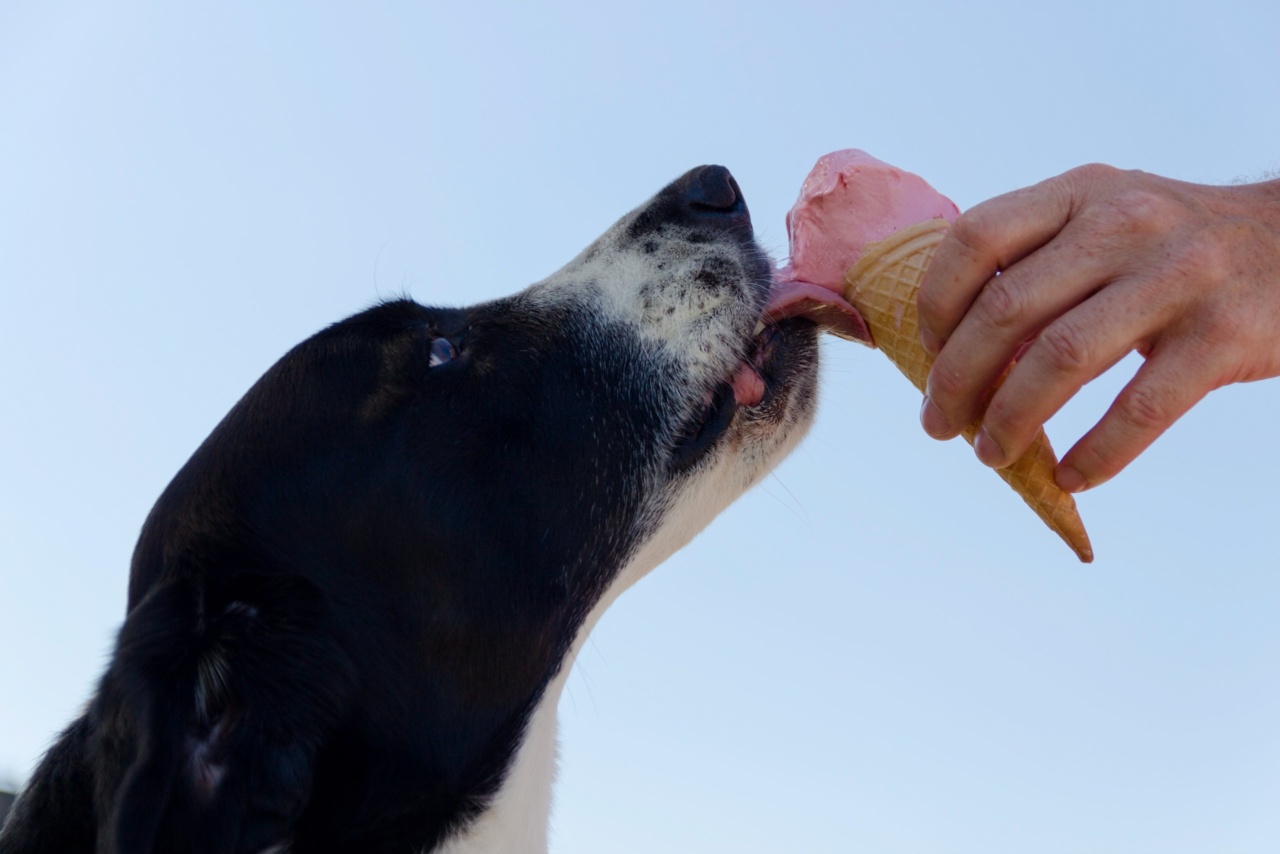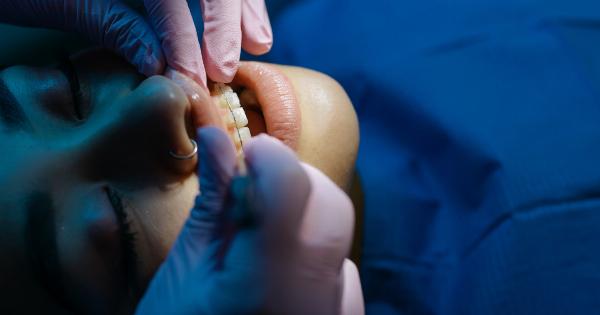Dogs can be quite curious and entertaining pets to have around. They love to explore and investigate anything that catches their attention, including other animals, insects, plants, and even garbage.
Unfortunately, this inquisitiveness can also lead to unpleasant and dangerous situations, especially if they indulge in indiscriminate eating. Dogs are known for their voracious appetites, but eating anything and everything they find can cause various health problems, from mild digestive disorders to life-threatening conditions.
Thus, it is crucial to train your dog to stop eating everything they see, and prevent them from accessing potentially hazardous substances.
1. Understanding Why Dogs Eat Anything and Everything
Dogs are natural scavengers as a result of their wild origins. They have a deep-seated instinct to search for food and eat as much as they can when they find it.
In the wild, this behavior allowed them to survive and thrive under any conditions, including periods of food scarcity. However, in domestic settings, eating everything they come across can quickly become a serious problem. Dogs may eat non-food items due to various reasons, such as:.
- Curiosity and boredom: Dogs often eat things out of sheer curiosity or because they have nothing better to do. They may simply want to explore and taste new and unusual things, especially when confined to a small area or left alone for long hours.
- Hunger and poor nutrition: Dogs may resort to eating non-food items if they do not get enough food or the proper nutrients in their diet. This can happen due to negligence, erratic feeding schedules, or feeding them poor-quality or expired food.
- Anxiety and stress: Dogs may also eat things as a coping mechanism for anxiety, stress, or separation anxiety. This behavior can be more common in dogs that have experienced traumatic events or changes in their environment or routine.
- Medical conditions: Dogs may eat non-food items as a result of medical conditions, such as gastrointestinal diseases, nutrient deficiencies, or hormonal imbalances. These conditions can affect their appetite, digestion, and nutrient absorption.
2. Risks and Consequences of Eating Anything and Everything
Eating non-food items can have various negative effects on your dog’s health, some of which can be severe and irreversible. Here are some of the risks and consequences of feeding your dog everything they come across:.
- Gastrointestinal problems: Eating non-food items can upset your dog’s stomach and lead to vomiting, diarrhea, constipation, and abdominal pain. Some dogs may also develop bloating and intestinal blockages, which can be life-threatening.
- Toxicity and poisoning: Many things that dogs eat are toxic or poisonous to them, such as chocolate, caffeine, grapes, raisins, onions, garlic, avocado, macadamia nuts, and some plants. These substances can cause vomiting, diarrhea, seizures, organ damage, and even death in severe cases.
- Foreign body ingestion: Dogs may accidentally swallow non-food items that can get stuck in their esophagus, stomach, or intestines. These objects can cause tearing, bleeding, infections, and blockages that may require surgery to remove. Common objects that dogs swallow include bones, toys, rocks, socks, and tampons.
- Nutrient deficiencies: Eating non-food items can interfere with your dog’s nutrient absorption and lead to deficiencies in essential vitamins, minerals, and other nutrients. This can weaken their immune system, reduce their energy levels, and affect their overall health and wellbeing.
- Behavioral problems: Eating everything dogs find can become a compulsive habit or a symptom of underlying anxiety, stress, or boredom. Dogs that engage in this behavior may become aggressive, destructive, or excessively needy, which can strain the owner-pet relationship and cause distress for both parties.
3. Tips to Prevent Your Dog from Eating Anything and Everything
Preventing your dog from eating anything and everything they see requires a combination of training, supervision, and environmental management. Here are some practical tips to help you train your dog to stop eating non-food items:.
3.1. Train your dog to leave it
The “leave it” command is one of the essential commands every dog should learn. It is easy to teach and can help your dog control their impulses and refrain from eating things they shouldn’t.
Here’s how to train your dog to leave it:.
- Start with some treats and two cups.
- Place one treat under one cup and another treat under the other cup.
- Show your dog the cups and say “leave it.”
- When your dog goes for the cup with the treat, cover the cup with your hand, say “no” firmly, and pull your dog back.
- Repeat the process until your dog learns that “leave it” means not touching or going for something.
- Once your dog understands the command, you can use it in various situations, such as when your dog goes for something inappropriate or when you need to redirect their attention to something else.
3.2. Keep tempting items out of reach
One of the easiest ways to prevent your dog from eating things they shouldn’t is to keep those things out of their reach. This can include:.
- Keeping garbage cans securely closed or in a locked cabinet
- Storing food and snacks in sealed containers or in the refrigerator
- Removing toxic and dangerous plants from your home or yard
- Securing electrical cords and wires
- Keeping small items, such as batteries, coins, or buttons, out of your dog’s reach
3.3. Provide plenty of healthy chew toys and treats
Dogs love to chew, and providing them with plenty of safe and healthy chew toys and treats can satisfy their natural urge to gnaw and munch. This can also help them alleviate stress and boredom, and keep their teeth and gums healthy.
Make sure to choose chew toys and treats that are suitable for your dog’s age, size, and breed, and avoid items that can break or splinter easily, such as bones or cooked poultry bones.
3.4. Feed your dog a balanced and nutritious diet
A balanced and nutritious diet can go a long way in preventing your dog from eating non-food items. A diet that meets your dog’s nutritional needs can keep them satisfied, energized, and less likely to crave or seek out inappropriate items.
Make sure to feed your dog high-quality dog food that contains essential vitamins, minerals, and other nutrients, and to avoid feeding them table scraps or human food that may be harmful to their health.
3.5. Build a consistent and rewarding routine
Dogs thrive on routine and structure, and having a consistent and rewarding schedule can help them feel more secure and less anxious. Try to establish a regular feeding, exercise, and playtime routine for your dog, and stick to it as much as possible.
Also, make sure to reward your dog with praise, treats, or toys when they display appropriate behavior or follow your commands. Positive reinforcement can be an effective way to strengthen the bond between you and your dog and reduce their stress levels.
Conclusion
Preventing your dog from eating anything and everything they come across requires patience, consistency, and a good understanding of your dog’s behavior and needs.
By training your dog to leave it, keeping tempting items out of reach, providing plenty of healthy chew toys and treats, feeding your dog a balanced and nutritious diet, and building a consistent and rewarding routine, you can help your dog stay safe, healthy, and happy.






























